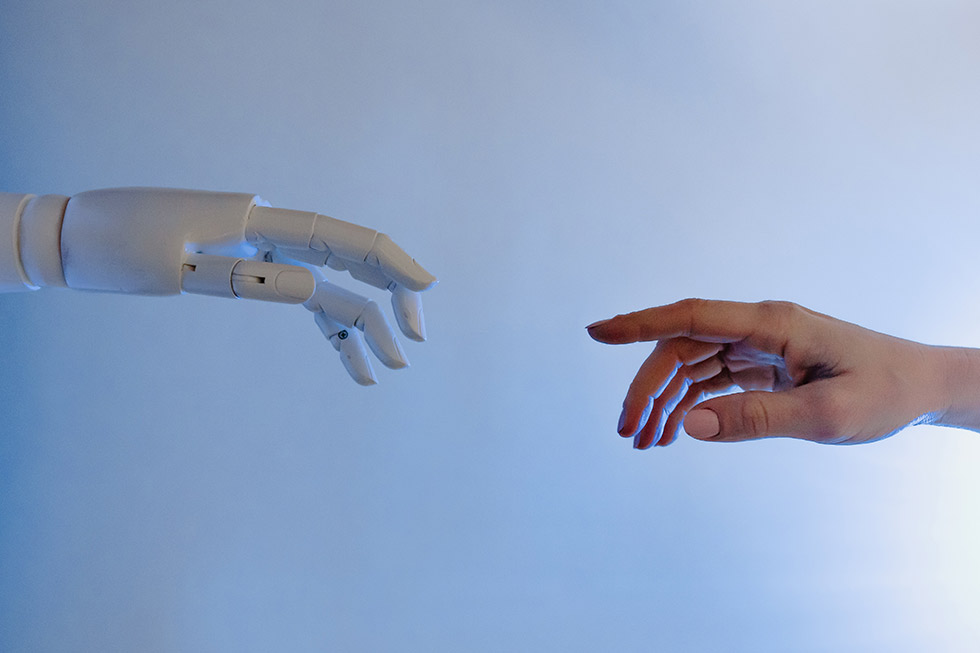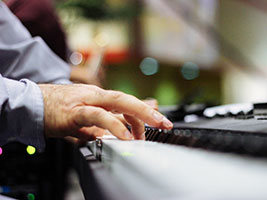ChatGPT - The Way Forward and jobs that may be affected
by StudyMalaysia.com on February 25, 2023 | Top Stories

ChatGPT (Chat Generative Pretrained Transformer) is an artificial intelligence chatbot developed by a San Francisco-based AI research company Open AI. It was released in November 2022 and has since taken the world by storm. It has caused ripples and waves across the business world and it is definitely here to stay.
ChatGPT is like a large language model - a programme that can respond to messages using patterns learned from training materials. It can be used as a research assistant, generating a first draft of each online course page according to topics in a course map. It interacts with users in a conversational way making it possible for it to
- answer follow-up questions
- admit its mistakes
- challenge what is incorrect
- reject inappropriate requests
- follow an instruction promptly and provide a detailed response
Eventually it is set to penetrate into and be used in all nooks and crannies of life on earth. It can have conversations on topics stretching from history to philosophy and it is precisely because of this that there is a growing apprehension among people that one day they might be out of job and replaced by technology. But wait a minute! Before you throw your arms up in alarm, you can be sure human beings are not sitting back and allowing themselves to be replaced by technologies. As the saying goes. ‘When one door closes, another door opens; but we often look so long and regretfully upon the closed door that we do not see the ones which open for us’. (Alexander Graham Bell) People will find ways to reinvent themselves to stay relevant in an AI world.
How AI Technology and Robotics affect existing jobs?
Jobs that are mundane, simple, repetitive, costly to run, error-prone or hazardous will be among the first to be replaced by automation. In such cases, humans can utilise AI to speed up and enhance their work efficiency. There will always be tasks that developers with human cognition can do that machines are not capable of. Complex, dynamic, cost-effective, low risk jobs that require the human touch are less likely to be automated. Roles that involve leadership, creativity, compassion, empathy, strategy and trust building cannot be taken over by machines. Some examples of these roles are nursing, teaching, care-taking, counselling and entertainment. Thus, humans are not going to be replaced or cannot be replaced totally by AI. However, that being said, different jobs can be taken over by AI but to different degrees.
Below are several areas of human expertise that are unlikely to be fully replaced by technology:
- Creativity: Creativity involves the ability to think outside the box, generate new ideas, and approach problems in unconventional ways. While AI and robotics can be programmed to generate solutions based on pre-defined rules, they may struggle to generate truly original and creative ideas.
- Emotional Intelligence: Emotional intelligence involves the ability to understand and manage one's own emotions and those of others. While AI and robotics can be programmed to recognize and respond to basic emotions, they may not be able to replicate the complexity and nuance of human emotions and social interactions.
- Critical Thinking: Critical thinking involves the ability to analyze information, evaluate arguments, and make reasoned judgements. While AI and robotics can be programmed to process and analyze large amounts of data, they may struggle to make nuanced judgements based on context and experience. Adaptability: Adaptability involves the ability to respond to changing situations and learn from new experiences. While AI and robotics can be programmed to adapt to certain situations, they may not be able to match the flexibility and versatility of human adaptability. Machines have no past experience to fall back on unlike humans.
- Leadership: Leadership involves the ability to inspire, motivate, and guide others towards a common goal. While AI and robotics can be programmed to manage teams and delegate tasks, they may struggle to replicate the human qualities of empathy, communication, and vision that are essential for effective leadership.
To quote Anu Madgavkar - a partner at the McKinsey Global Institute:
“Human judgement still needs to be applied to these technologies to avoid error and bias. These should be taken as productivity enhancing tools as opposed to complete replacement.”
It is true that some workers may be displaced but with the advent of this new technology new activities and potential opportunities for employment will be created. For every position it replaces, it will create new opportunities and the need for new industries.
So, the question now is not about whether we can do away with AI technology but more about how we can harness AI technology to make our lives easier and better and to become more productive.
Below are some of the jobs that run greater risks of being taken over by AI:
- Telemarketer/telesales - AI is used in Robo-calls as it can make use of customer profile and find ways to appeal to customers. To counter this, humans can attempt to move to more face-to-face interactions which is lacking in AI-run programmes.
- Customer support - AI can provide customer support by feeding customers with more information than humans can. However, the elements of empathy and persuasion may not be there.
- Warehouse workers - Companies like Amazon are already using robots to replace humans as most of the work done by these workers are mundane and repetitive and so can be more efficiently done by robots.
- Clerks & Operational Staff - Filing, processing procurement, inventory management, filling forms, checking errors, estimating sales and reporting findings to management are likely to be more effectively done by machines in the near future.
- Telephone Operators - AI can perform speech recognition better than humans can. The trend now is, more people are relying on messaging rather than using the telephone to get things done.
- ATM/Cashier - ATM have long replaced human tellers and AI will continue to infiltrate into other aspects of banking.
- Fast-food Workers - Order-taking, delivering of food and very soon food preparation and cooking will become automated. Robo-restaurants are set to take away business from traditional food business.
- Dishwashers - Dishwashers that perform more varied tasks than just washing the dishes fed to them will be used pretty soon. They may be able to collect empty dishes, clear the tables before doing the washing. Waiters and human dishwashers will then become redundant.
- Assembly line supervisors - As this kind of work is among the most repetitive, assembly supervisors are most likely to be replaced soon.
- Couriers - Delivery robots, mini-vehicles, trucks and drones are now being employed to do delivery jobs.
On the flip side, airplanes are using more and more of these complex technologies during flights mostly controlled by computers but human pilots are still needed to tune the computers and controls whenever needed. All current AI systems need guided training from humans and human input to train on. This means that work produced by humans will remain an essential part of how machines function.
Some jobs are still unlikely to be replaced by AI for a long while from now or can only be replaced to a lesser degree in certain aspects of the jobs. Some of these are:
- Software developers/Cybersecurity Analysts- While some aspects of software development may become automated, such as code generation, software developers will continue to be in high demand to design, test, and maintain software applications. As cybersecurity threats become more sophisticated, there will be an increased demand for cybersecurity professionals with expertise in AI and machine learning to detect and respond to attacks.
- Writers/Artists - Every piece of creative writing or artwork is unique. Writers write based on their own experience, emotions and interactions with other people. Writings are not controlled by a set formula and therefore machines cannot replicate works of writers.
- Sales Professionals - AI may be able to process and automate administrative work but can never replace human interactions. A lot of business transactions are done based on trust which machines cannot give.
- Educators/teachers - Education and teaching are more than just the transfer of knowledge. For learning to take place, patience and discipline are needed. Only human teachers are capable of showing friendliness and genuine concern for the well-being of their students.
- Human Resource Managers - To deal with and employ people, a lot of interpersonal skills are required. Information of workers fed into machines can be processed by the machines but they (the machines) are unable to see the emotional side of the workers and may not be able to find the most suitable candidate for the job. A human resource manager needs non-cognitive and reasoning skills which a machine does not possess.
- Attorneys/Lawyers - Every case handled by a lawyer is unique and must be tailored to the needs of the clients. There is no set of fixed rules to follow as some lawyers will be required to bend rules from time to time. There are no absolutes as lawyers are dealing with people and not machines.
- Chief Executives - These jobs again require interpersonal skills. Different interpersonal skills have to be called to the fore when dealing with people. Machines cannot be programmed in all aspects of human relationship.
- Psychiatrists/Psychologists - All clients of psychiatrists are unique with different problems. A lot of empathy and compassion will be required to deal with these clients. Machines cannot be trained to do this. Mental health is delicate and sensitive. The human touch is necessary to provide counselling, care and support.
- Event planners/Project Managers - There are all kinds of events for different audiences and participants. Different events will need coordination and negotiations with different sectors of the society. There is no ‘one size fits all’ programme that can be employed to plan an event.
- Public Relations Manager - These like event planners have to deal with the general public. They need to build connections with people and liaise with them to carry out events and functions.
- Graphic designers - Those in this line need both technical and artistic skills. Machines cannot cater to the varying demands of clients as most designs need to be original and cannot and should not follow a set pattern dictated by a machine.
- Surgeons - Although micro-biotic can enhance the precision of surgery, surgeons are required to connect with patients and to make critical decisions from time to time.
- Scientists - Scientists are continually conducting experiments and lab tests to discover and invent new things. In fact they are the ones who will come up with new training materials for future development of AI technology.
The AI field will need people to create new AI systems. People who are needed will include software developers, hardware engineers, data scientists, robotics engineers and other IT professionals. AI systems need to be trained with AI models. Therefore AI trainers are needed to train, fine-tune, evaluate and deploy the models. Expertise is also needed to manage the AI system. A human manager is needed to oversee the system and intervene when the system makes an error, runs into a situation it cannot handle or performs unethically. All AI systems will require regular maintenance and repair to keep them functioning optimally.
The above list is by no means exhaustive but one thing for sure is humans are not going to be easily replaced by AI so long as we continue to reskill and upskill ourselves moving away from replaceable mundane and repetitive work to more challenging and innovative fields that no machines can take over.
Sources:
You May Also Be Interested In...
Picking a Pre-U Programme - Part 2
![Picking a Pre-U Programme - Part 2 - StudyMalaysia.com]() Move over SPM, here's to a new and exciting future! As you make y...
Move over SPM, here's to a new and exciting future! As you make y...What is the field of languages all about?
![What is the field of languages all about? - StudyMalaysia.com]() Do you know what they call a person who knows many languages? A polygl...
Do you know what they call a person who knows many languages? A polygl...Careers in AV techniques and media production
![Careers in AV techniques and media production - StudyMalaysia.com]() Audio visual and media production jobs involve operating, maintaining ...
Audio visual and media production jobs involve operating, maintaining ...UPU Online Application for 2021/2022 Academic Session
![UPU Online Application for 2021/2022 Academic Session - StudyMalaysia.com]() Good news for SPM school leavers! The UPU Online Application for the 2...
Good news for SPM school leavers! The UPU Online Application for the 2...SETARA and MyQUEST 2018/2019 show continual improvement from Malaysian HEIs
![SETARA and MyQUEST 2018/2019 show continual improvement from Malaysian HEIs - StudyMalaysia.com]() The eight six-star achievers in the SETARA 2018/2019 are Universiti Ma...
The eight six-star achievers in the SETARA 2018/2019 are Universiti Ma...Memilih Program Pra-Universiti yang tepat untuk anda: Program Asasi oleh Universiti dan Kolej Swasta
![Memilih Program Pra-Universiti yang tepat untuk anda: Program Asasi oleh Universiti dan Kolej Swasta - StudyMalaysia.com]() Sekiranya anda mempunyai kelayakan SPM dan anda merancang untuk mengik...
Sekiranya anda mempunyai kelayakan SPM dan anda merancang untuk mengik...





























